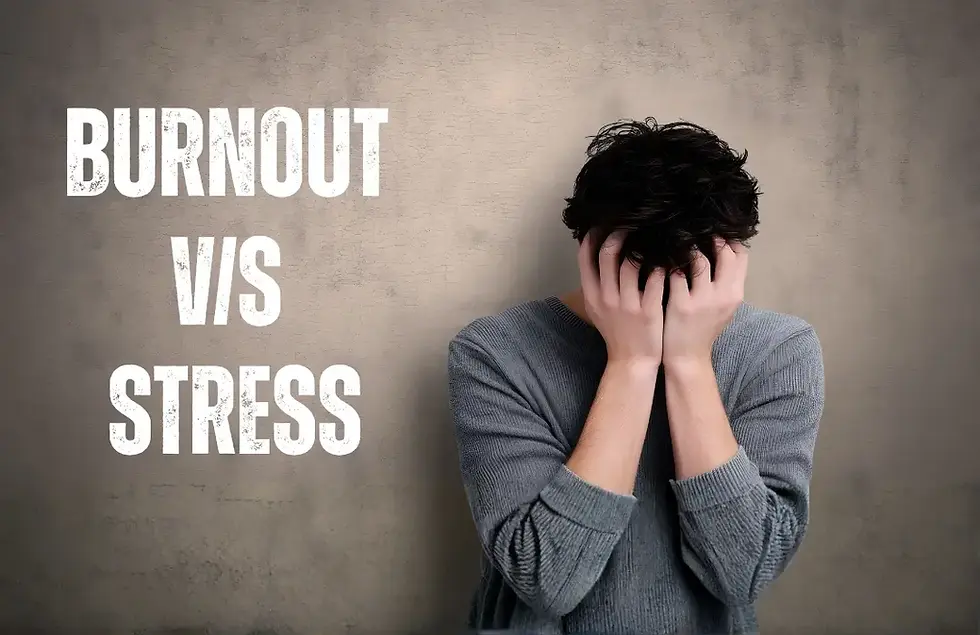Co-Occurring Diagnosis: Substance Abuse and Mental Health
- Mosaic Mental Health

- May 16, 2024
- 3 min read
Updated: Jun 17, 2024

Co-occurring disorders are known as having both a mental illness and a substance use disorder. A person with a mental illness who also uncontrollably uses drugs is said to have a 'dual diagnosis or a 'co-occurring diagnosis,' according to doctors.
This section explains how drugs and alcohol can negatively impact your mental health. In this post, "drugs" refers to recreational or prescription drugs.
What Is Substance Abuse?
SUD is a mental condition that affects a person's brain and behaviour, leading to an inability to manage the use of substances such as legal or illegal drugs, alcohol, or pharmaceuticals. With symptoms ranging from mild to severe, addiction is the most severe form of SUDs.
People with a substance use disorder (SUD) may also have a co-occurring mental disorder. Depression, anxiety disorders, bipolar disorder, attention-deficit hyperactivity disorder (ADHD), personality disorders, and schizophrenia are all co-occurring disorders.
Do you suffer from co-occurring disorders? Learn how to cope with addiction while suffering from despair, anxiety, or other mental health difficulties.
Substance Abuse Or Mental Health Problems: Which Comes First?
In co-occurring disorders, substance abuse and mental health have unusual symptoms that may interfere with your capacity to maintain a healthy family life, function at work or school, deal with life's obstacles, and connect with others. Substance abuse and mental health illnesses are usually linked—either causes the other, or both occur together. When a mental health condition is untreated, the substance addiction problem usually worsens. And when there is a rise in drug misuse, there is usually a rise in mental health issues.
Identifying A Dual Diagnosis
It can be challenging to distinguish between two diagnoses. It takes time to separate what is a mental health disorder from what is a drug problem. The signs and symptoms also differ depending on the abused substance, whether recreational drugs or prescription medications. There are, however, some general indicators that you may have a co-occurring disorder, such as:
Someone in your family had a mental illness or was addicted to drugs.
Even if you are sober, you feel depressed, anxious, or otherwise out of sorts.
You use drugs to cope with unpleasant memories or feelings, to manage pain or the intensity of your moods, to face frightening situations, or to stay focused on tasks.
You discovered a link between your substance abuse and your mental health. For example, you become depressed when you drink. Or you drink when you are anxious or haunted by unpleasant memories.
Common risk factors can worsen both SUDs and other mental disorders. SUDs and other mental illnesses can run in families, implying that specific genes may be involved.
Symptoms And Signs Of Typical Co-Occurring Disorders
Depression, bipolar, and anxiety disorders are the most common mental health problems that co-occur with substance abuse.
Treatment For a Dual Diagnosis
Treating SUD and co-occurring mental disorders together is preferable to treating them separately. As a result, a healthcare provider must evaluate individuals seeking treatment for SUD or other mental disorders for each disorder. Because overlapping symptoms can make it challenging to make an accurate diagnosis, the provider should use comprehensive assessment tools to reduce the possibility of a missed diagnosis and provide targeted treatment.
Treatment for your mental health issue may include medication, lifestyle changes, peer support, and individual or group counselling. At the same time, treatment for your substance abuse may include detoxification, withdrawal symptoms management, behavioural therapy, and support groups.
The Bottom Line!
Behavioural therapy, proper medication, lifestyle changes, and peer support groups may all be part of your treatment plan, but selecting the strategy that best meets your needs is critical. There is always a chance. Both mental disorders and problems with drugs are treatable conditions. Recovering from co-occurring disorders takes time, courage, and commitment, but people with these problems can still improve.
We're here to assist you!
Mosaic Mental Health Service Provider in Katy, Texas, can provide you with professional assistance. We, a licensed Mental Health Service Provider, can recommend medication management and assist you in better understanding your or your loved one's condition.
We offer programs to treat mood disorders, attention deficit hyperactivity disorder (ADHD), anxiety disorders, sleep disorders, and thought disorders for patients ages 6 and up. In addition, we provide wellness services like GLP-1 treatments for weight loss, Low-T and other hormone replacement therapies, treatment for opioid use disorder, and more! You may call (713) 987-7828 or visit https://www.mosaicmentalhealthtx.com/. For added convenience and accessible communication, we also use the Spruce Health app to allow clients to stay in touch and securely contact the provider and staff via text, phone, and email.

.png)



Comments